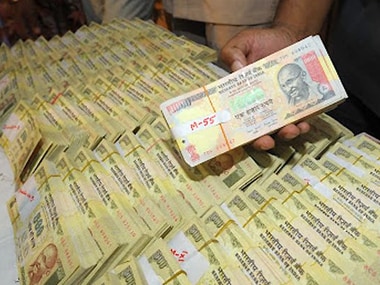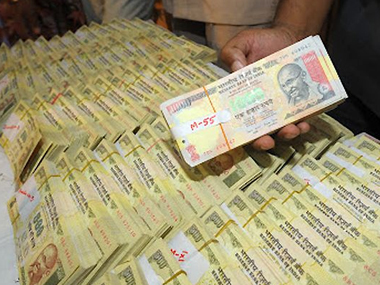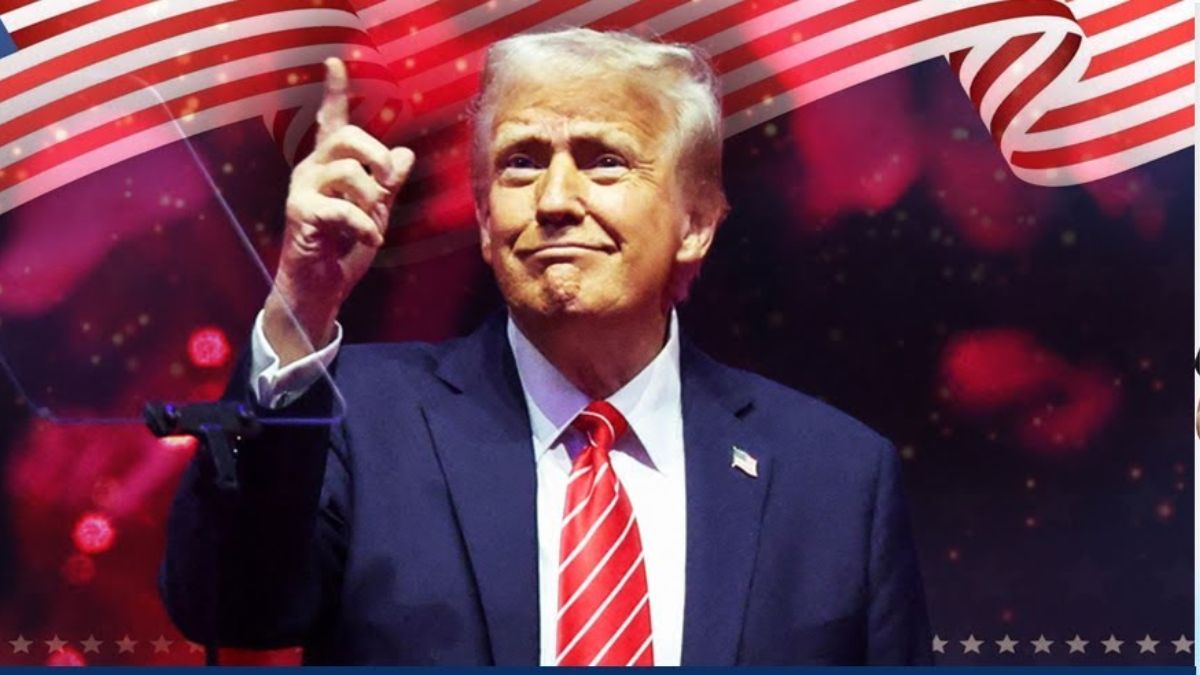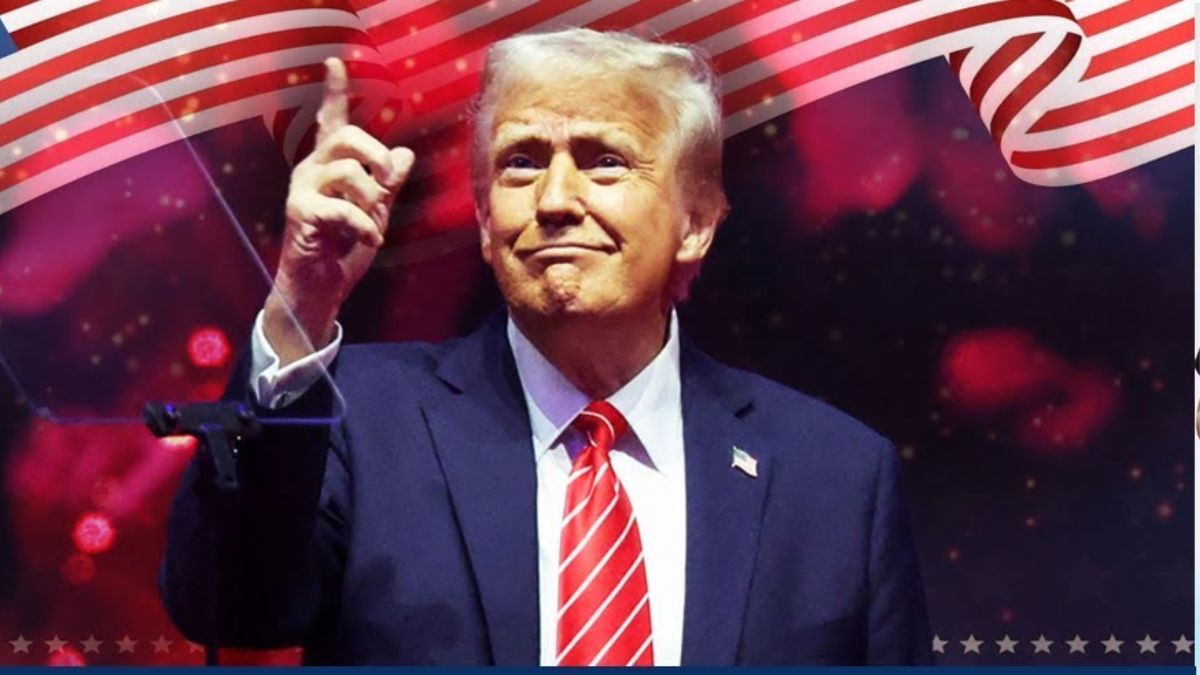How do you solve the problem of black money, given that it is not quite the show-stopper for the Modi government that it was projected to be?
Narendra Modi had led voters to believe, in multiple speeches during the 2014 Lok Sabha elections, that the recovery of colossal wealth stashed overseas would quickly roll in “acche din” – a golden era — for India.
However, 22 months on, the measly recoveries, in dribs and drabs — just Rs 2,428 crore so far — in spite of the enactment of a tough-talking Black Money Act may count as one of the single biggest disappointments of the public with the Narendra Modi government.
To that extent, it is worth evaluating what has contributed to emasculating the Black Money (Undisclosed Foreign Income and Assets and Imposition of Tax Act, 2015) beast to the point of ridicule.
Act blindsides objectives
For starters, the Act flexes muscle with its draconian provisions for Indian tax assesses caught stashing black money overseas, but has completely missed the bus in identifying those who aid and abet this process and therefore, in creating appropriate deterrents.
The black money law is distressingly myopic about two key players in the generation of black money, especially those parked overseas — the taxman (assessing officer/AO) and the tax consultants (charted accountants).
This lack of focus is suspicious, if not ludicrous. It is not as if tax assessees have the skills to register companies and operate themselves in tax havens. A notable example is the recent Panama Papers expose in which Mossack Fonseca, a Panamanian law firm, was found selling anonymous offshore companies around the world, enabling the owners of these shell companies to cover up their shady business dealings and hide their incomes from their national tax authorities.
Impact Shorts
More ShortsAt home, in the ongoing Agusta Westland scandal, industrialist Gautam Khaitan’s Delhi lawyer, implicated in the money trail, has admitted to the setting up of a shell company in Tunisia. This is a relatively new find from the better known tax havens that allow the operation of post box companies.
In the recent past, too, in the Rs 1.76 lakh crore 2G spectrum scam, the role of the government’s own law officers and private law firms in advising clients on how to circumvent the law was similarly, amply highlighted.
In the Robert Vadra expose, the financial wizardry of his chartered accountants in cooking the books of his multiple firms to mask income as loans/current liabilities was amplified.
However, despite these valuable learnings, Section 53 alone, in the Black Money Act, prescribes some punishment for aiding and abetting creation of foreign black money, but with no line of sight into how this provision will be implemented to curb the robust activities of tax consultants/chartered accountants, lawyers or law firms like Mossack Fonseca.
Jayant Sinha, Minister of State for Finance, has admitted to the role of tax consultants in generating and maintaining black money in his post-Budget interactions. Yet, collectively, the government and the Finance Ministry in particular, have made little headway in training its tax artillery on the right targets.
As for the role of the taxman, what needs to be done is explained very simply by Kaushik Basu, the chief economist of the World Bank and former chief economic adviser to the Indian government in a recent interview, where he says he had proposed that, “instead of both bribe-givers and bribe-takers being held criminally responsible for their actions, only the bribe-taker should face sanctions. It is a simple change, but radically alters the relationship between the two parties. It means people who give bribes no longer have a shared interest in keeping their nefarious activity secret. Freed from the risk of prosecution, bribe-givers would have a powerful incentive to reveal corruption.”
But the Black Money Act does exactly the opposite.
Not just that, the Black Money Act was left to the same tax department — which has a vested interest in its failure — to draft the law. If black money is eliminated, so will bribes be. No surprise then, that the babus have amply served their own objectives by introducing fatal flaws in its construct, rendering the Act a non-starter.
As part of the Act, a one-time, three-month compliance window was proposed for resident Indians to declare their foreign un-accounted income and escape penal provisions, including jail up to ten years. But the provisions were so muddled that at least half a dozen clarifications had to be issued for an Act passed by both Houses of Parliament and touted as the showpiece of the then newly formed government. Was this sheer incompetence or sabotage? Despite the political embarrassment that followed, no questions were asked and no heads rolled.
Again, while publicly pinning responsibility for tax terrorism and a vitiated investment environment on the tax administration, both Prime Minister Modi and Finance Minister Arun Jaitley have failed to curb rampant malpractices or to make the tax department — which generates black money in order to earn a bribe in the first place — accountable.
Either the government is unwilling or yet to find its feet on cleaning the rot within — something that does not need tedious legislation. A harsher punishment for corrupt officials rather than the tax assessee should do the trick, but instead, the Act (Section 53) is softer on them.
Past experience shows that whenever a tough stand is taken on corruption (notably the Supreme Court interventions in the 2G spectrum and Coalgate scams), bureaucrats dig in their heels and say they cannot work in an environment of fear. This is a tacit admission that working is equal to taking bribes for most bureaucrats and they additionally expect insulation from the law. It is really upto the government to find a way around this.
Black modus operandi
Either way, the Act needs revisiting to make it more nuanced and effective. And it can only do so by reflecting a thorough understanding of the entire value chain of black money — domestic and foreign — rather than focussing on the mere scripting of a punishment charter.
If the government is truly serious about curbing black money, it first needs to make the tax code so simple, that even fifth or sixth grade students are able to compute and pay their parent’s taxes. After all, a majority of the population is still illiterate and one can hardly achieve compliance without comprehension. But hardly anyone is in a position to file their I-T returns themselves, since the I-T Act is so complex, that only a tax expert can read it, leave alone understand it. This drives tax payers into the arms of chartered accountants/tax consultants.
It is well known that the simple filing of I-T returns barely generates any real income for these consultants. So, to generate higher fees, clients are encouraged to tap loopholes to “save” tax. This creates a web of tax evasion in the guise of tax saving, which is impossible for the client to get out of. Now, with penal provisions, the client is even more terrified to break away from his tax consultant. Worse, he is afraid that the consultant who has access to all his past filings, may report him to the I-T Department.
The tax consultant, in turn, in order to safeguard his practice, maintains an understanding and a cut with the I-T officer who passes the assessment order. So, in effect, the I-T department and the tax consultant are both in full knowledge of all the black money generated before it is diverted to any foreign bank account. It is therefore, a no-brainer that if any income is concealed, or in other words, black money generated, it is done with the active collusion of a tax expert.
Some recent news reports on the arrest of some income-tax officials and charted accountants on charges of bribery amply illustrate this dark modus operandi.
While there is no denying a valid and legitimate need for tax consultants, shouldn’t they be encouraged to guide tax payers on how to adhere to the law, rather than violating the law by acting as conduits for bribes? Considering that they are directly responsible for not disclosing income in the I-T returns, shouldn’t they be held equally liable and slapped with greater penalties than the tax assessee?
Seek and ye shall find!
What is additionally curious, considering the government bogey of having its hard, eagle eyes trained on financial corruption, is that in both cases, the matter was exposed by the CBI sans any visible signs of internal departmental vigilance at play.
If you ignore the propaganda, you will find that the beefy Black Money Act will fail in a ring with the big fish since it is actually designed to bully puny defaulters with small stashes abroad. Shying away from a real fight, the Act pushes big tax evaders out of the ring, even deeper into the tangled webs of tax consultants by exempting NRIs and their foreign incomes from its ambit.
In so doing, the Act ensures that at least one member of such a family is a foreign citizen or NRI. And making one member of each family an NRI is easy to do. One can buy residency in most countries for a couple of million dollars. Some countries provide citizenship if one purchases real estate. This is small change as compared to the quantum of black money that this will help big tax evaders stash overseas.
One just has to look at how conveniently, Vijay Mallya, a sitting Rajya Sabha member, has declared that his foreign assets are insulated since neither he nor his children are Indian citizens. The purportedly draconian Black Money Act encourages the super rich to follow the Mallya way. Unsurprisingly, in 2015, 4,000 millionaires reportedly left the country.
Admittedly, tax information exchange agreements with an expanding host of countries will provide information to the Indian government in the future and make it riskier to hold undisclosed foreign bank accounts. But how is the Tax Department hoping to prove that the foreign assets are, in fact, incomes generated in India that are siphoned overseas and not the bona fide foreign incomes of the NRI, considering there are restrictions on how such information can be used?
In summary, Modi and Jaitley need not search overseas for black money. They can save themselves the trouble by looking in their own backyard: by keeping an eye on I-T officials and their tax consultant friends (who could also be holding benami properties on behalf of I-T officials).
Seek and ye shall find!


)

)
)
)
)
)
)
)
)



